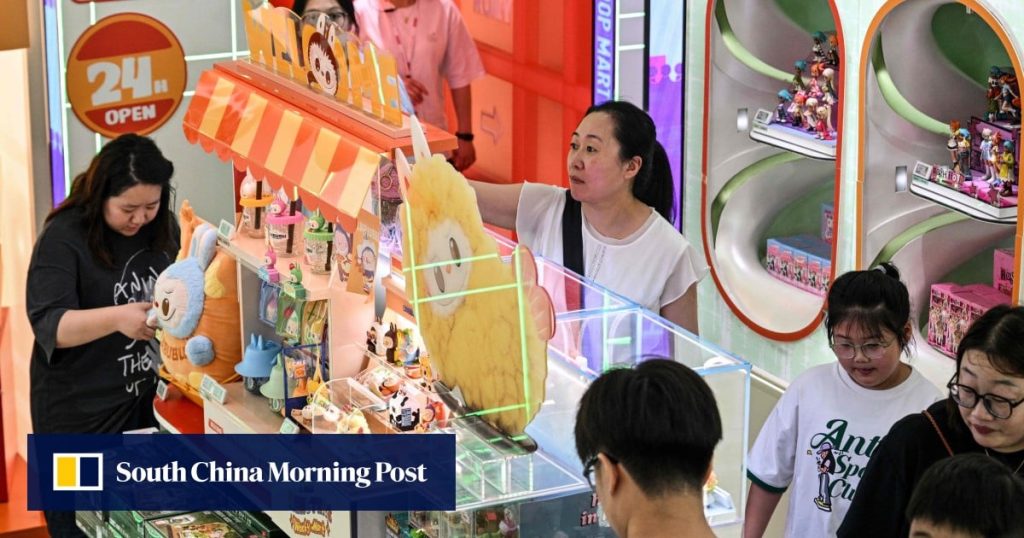The mall in the capital of central China’s Hubei province is not an isolated case. Pop Mart and fellow makers of collectible toys like Jellycat and Top Toy are increasingly taking over prime locations as China’s shopping malls embrace a new reality; consumers are spending less overall but are more willing to pay for small but emotionally satisfying purchases.
Emotional spending, or the pursuit of non-functional satisfaction, is reshaping China’s malls, according to Jacky Zhu, head of retail research at JLL China. “Where does such satisfaction come from?” he said. “Trendy collectible toys could be one.”
The trend also embraced everything from milk tea to perfume stores and outdoor gear to climbing gyms, he added, with malls also adding larger halls with more greenery – anything to create a joyful experience or foster connections between shoppers and their peers or the community.
China has faced sluggish consumer demand since a decades-long period of rapid growth reversed during the Covid-19 pandemic, leaving behind a slow economy and uncertain job prospects. The world’s second-largest economy is now in the fifth year of a property downturn, during which many households have suffered losses in the value of their homes.
Retail sales grew 3 per cent in September, according to data from the National Statistics Bureau, a far cry from growth that topped 10 per cent in most years over the two decades leading up to the pandemic.


